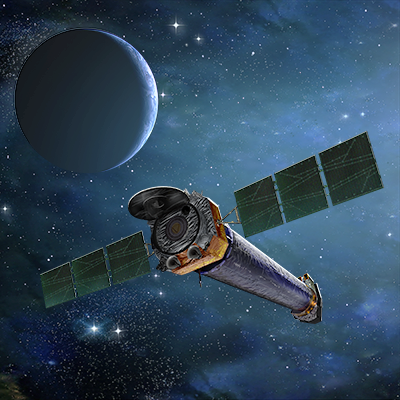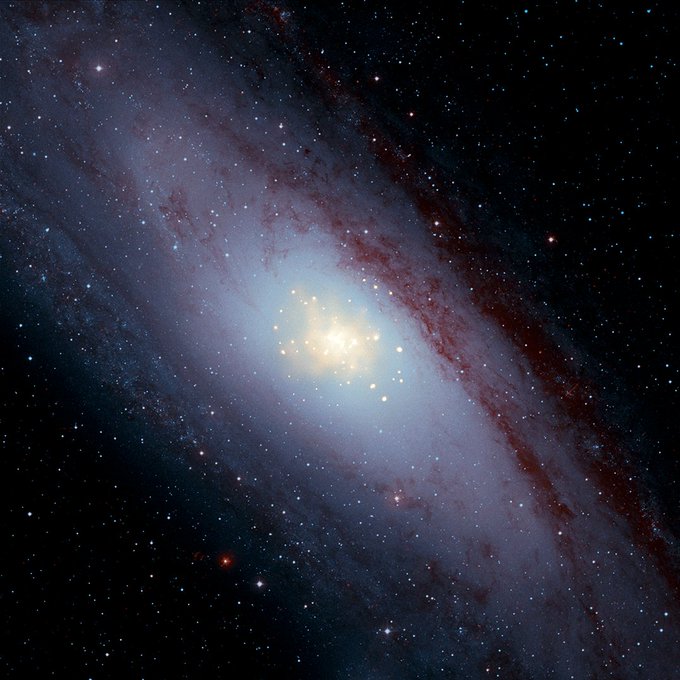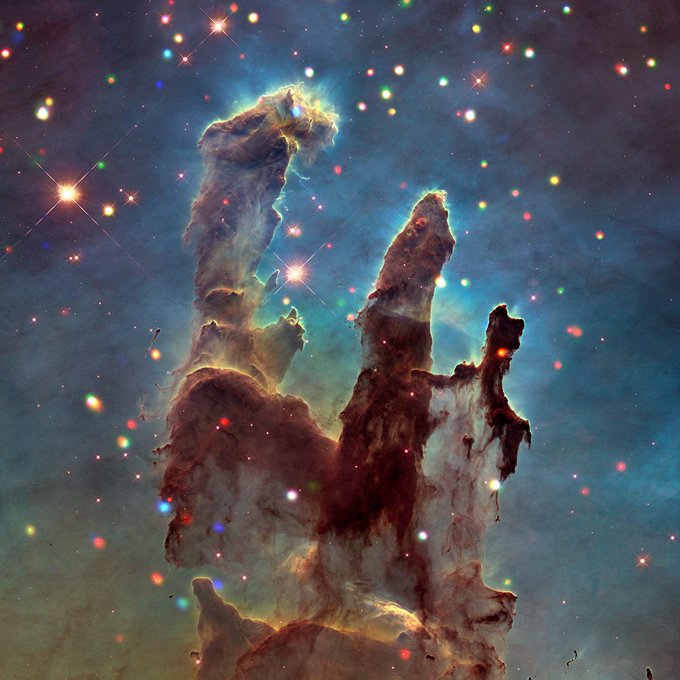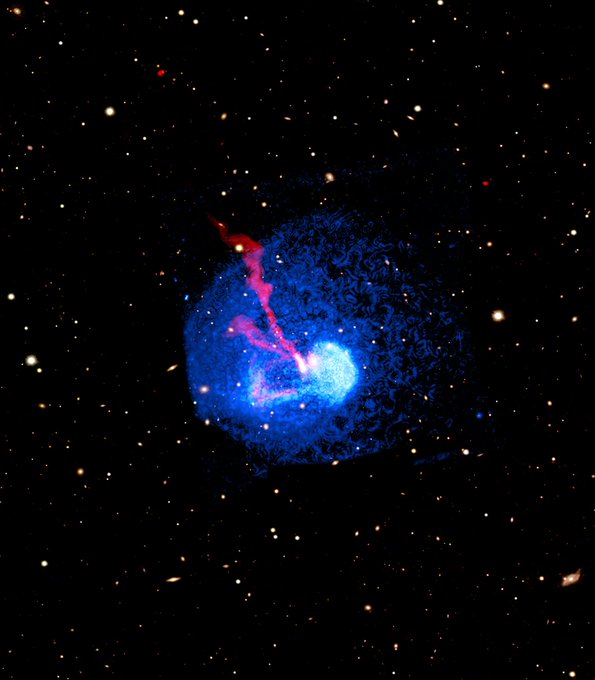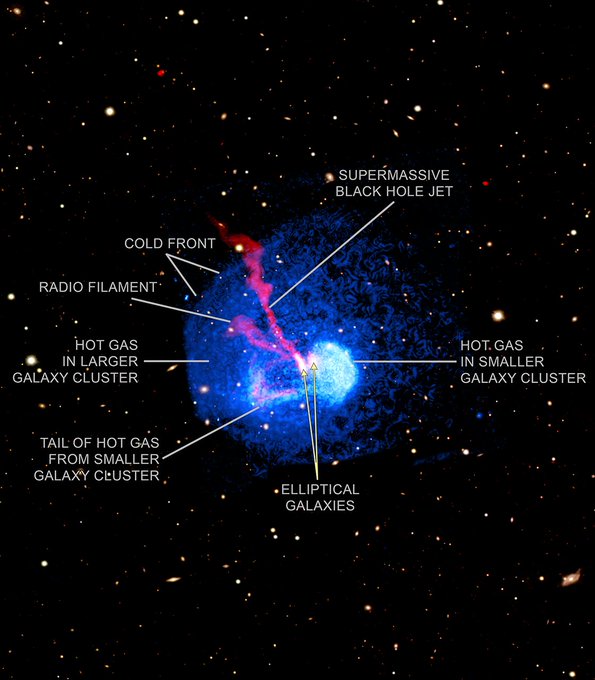Today Chandra is studying E0102, a supernova remnant produced by the explosion of a massive star in a nearby galaxy. Most of the oxygen in the Universe is synthesized in massive stars. The amount of oxygen in this ring alone is enough for thousands of solar systems.😮
Westerlund 2 is a cluster of stars residing in a boisterous nursery of star birth known as Gum 29. This incredible view, combining observations from Chandra & @NASAHubble, spans about 44 light-years and sparkles with the light of thousands of stars. #StarrySights ✨
Pulsar IGR J11014 is zooming away from a supernova remnant at over 4 million kilometers per hour — likely kicked to speed by a supernova explosion! The extraordinary jet trailing behind the pulsar stretches for more than 37 light-years.🌠
Today Chandra is studying stars in Musca, the fly. Nearby in the sky is planetary nebula NGC 5189. Why is it shaped like the letter "S" in reverse? The star at the nebula's core is spewing matter as it rotates & wobbles — like a colossal cosmic lawn sprinkler of sorts.
⚫Today Chandra is looking in on the central, supermassive #BlackHole (SMBH) in the Andromeda Galaxy. Our Milky Way's SMBH, Sagittarius A* (pronounced "Sagittarius Ā-Star"), is about 4 million times the mass of our Sun. Andromeda's SMBH contains more than 20 times that much mass!
In the southern portion of the Eagle Nebula, about 6,000 light years from Earth, three towers of gas & dust standing roughly 4-5 light years tall are giving rise to new stars from within their wispy spires. https://t.co/sduFZxh0xV
To expand our understanding of the Universe and all its wonders, scientists collect & analyze light emitted by phenomena across the electromagnetic spectrum. This NGC 602 image combines light observed by NASA's Great Observatories: Chandra, Hubble, & Spitzer. #SpaceExplorationDay
💥When the titans of space — galaxy clusters — collide, extraordinary things can happen. A new study using NASA's Chandra examines the repercussions after clusters clashed in Abell 1775, a system where a smaller galaxy cluster has plowed into a larger one. https://t.co/PjHA0d6F1J
N63A is one of the biggest supernova remnants in the Large Magellanic Cloud — more than 25 light years from side to side. Violent shock waves triggered by the supernova explosion have caused portions of this remnant to reach temperatures that exceed 10 million degrees Celsius.😮
🌀Today Chandra is peering into galaxy NGC 1365, also known as the Great Barred Spiral Galaxy. The bar in this galaxy rotates clockwise with velocities in the nucleus of about 2,000 kilometers per second, resulting in roughly one rotation in 350 million years.
